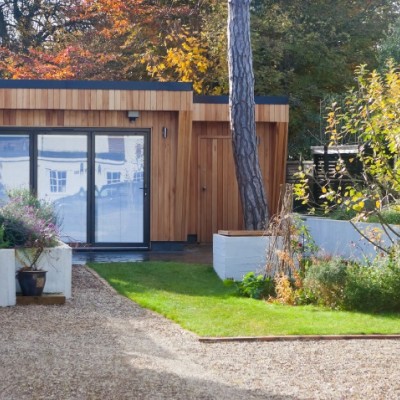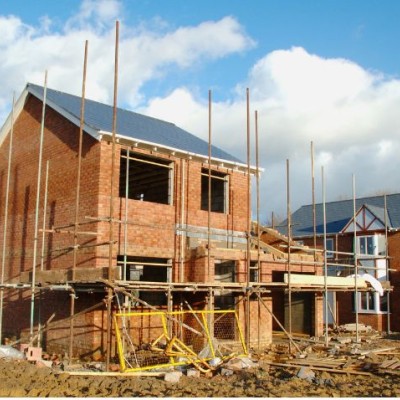How you can finance different types of property purchase

If you’re moving home and have either plenty of equity or savings you can use for a deposit, plus a decent income, it can be straightforward to finance your next purchase via a traditional mortgage.
This is how most people ‘consumed’ property in the past, but, as lifestyles, earnings, investment strategies and the supply of property has shifted over the years, there are now many different ways to put a roof over people’s heads and lots of different options for financing your property purchases.

For first-time buyers
While some first-time buyers (FTBs) might have enough income and savings to go down the traditional mortgage route, many struggle with affordability, particularly when it comes to saving for a deposit.
The good news is that there is plenty of help out there for FTBs, including:
- Mortgages that can be secured with a guarantor (usually parents)
- 100% Track Record Mortgage for those who can prove at least 12 consecutive months’ rental payments within the last 18 months – and there’s no need for a guarantor
- The Family Springboard Mortgage where a ‘helper’ puts 10% of the purchase price in an account as security on the loan, enabling the FTB to borrow 100%
- The new build Deposit Unlock Scheme you can purchase a property with just a 5% deposit
- For buyers in England, the First Homes Scheme, where certain homes are available to FTBs for between 30% and 50% less than its market value
If you’re looking for your first home, the advisers at our sister company, Mortgage Scout can explain all the financing options available to you and advise which might be most suitable.
Shared Ownership
This option, where you purchase a percentage of the property and pay rent on the remainder, is increasingly popular in areas where prices are higher than average, such as London and Edinburgh. Because you are only buying a proportion of the property – usually between 25% and 50% - the deposit amount and mortgage payments are more affordable.
For more information and to search available shared ownership properties in your area, visit our sister company, SOWN.

Buying a property to let
If you are buying a property to rent out, you will need a buy-to-let mortgage. The big difference here is that while standard residential mortgage lending is based on your income, the amount you can borrow for a BTL mortgage is mainly determined by the potential rent.
Lenders will usually require a minimum ‘rent coverage’, where the rental income is somewhere between 125% and 145% of the mortgage repayment amount. If you are a higher rate taxpayer, the cover required may be higher as you can’t deduct all the financial costs from your rent anymore.
Although BTL mortgages are now commonplace, around 75% of products are still only available through brokers - i.e. you can’t access them by going directly to a lender yourself. And if you’re planning to let the property as a House in Multiple Occupation (HMO), you will need a specialist BTL mortgage, which only a limited number of lenders offer, so it’s even more important to use a broker.
Buying at auction
If you’re looking for a fixer-upper, whether for yourself or as an investment property, or you just fancy a property you have seen online and it’s at an auction, the finance works a little differently to buying on the open market. This is because you will need to have finance in place before bidding, because contracts are generally exchanged when the hammer falls and you usually only have 28 days to complete.
Specialist auction finance companies will generally lend a maximum of 75% of the purchase price, and fees and interest rates will be higher than with a traditional mortgage, but they can turn things around within a few days.
Note that if a property is not habitable – e.g. it doesn’t have a functioning kitchen or bathroom – it may be unmortgageable. In that case, if you don’t have the capital to make a cash purchase, you will need to look into the possibility of taking out a bridging loan until such time as the property can be mortgaged. We work closely with our sister company First for Auctions to help buyers at auction understand financing options up-front.

Renovation mortgages
If you’re buying a property that needs work, you may be able to get a specialist ‘house renovation mortgage’, where you borrow money for both the property and the renovations. It’s important to know that if a lot of work is required, the lender may withhold some of the funds until specific essential repairs have been done.
Green mortgages
If the property you’re buying already has an EPC rating of A or B, you may qualify for a ‘green’ mortgage, where lenders reward eco-friendly homeowners with lower interest rates or cashback.
And if you’re buying a property that currently has a lower energy rating, but you’re planning to carry out improvements, you may be able to borrow additional money at a discounted interest rate or get cashback for making certain upgrades.
For instance, at the time of writing, Halifax offers up to £1,000 cashback for fitting a heat pump, and Nationwide allows mortgage holders to borrow between £5,000 and £10,000 at 0% interest for carrying out green home improvements.
Our sister company Mortgage Scout can help with all aspects of securing financing for your property purchase. To discuss your own plans and find out what mortgage options are available, call them on 0800 144 4744 or book a telephone appointment online.
Your property may be repossessed if you do not keep up repayments on your mortgage.
There may be a fee for mortgage advice. The actual amount you pay will depend upon your circumstances.
The fee is up to 1%, but a typical fee is 0.3% of the amount borrowed.
MAB 17468
Looking for advice?
If you're looking to let or sell your property, we can help. Get in touch with your local branch or book in for a property valuation.

Contact Us
Got a question, general enquiry or something else?
You may also like
Since we started in 1987 we have grown to one of the UK’s largest property groups, we can save you time and money by offering a range of services and expertise under one roof.



